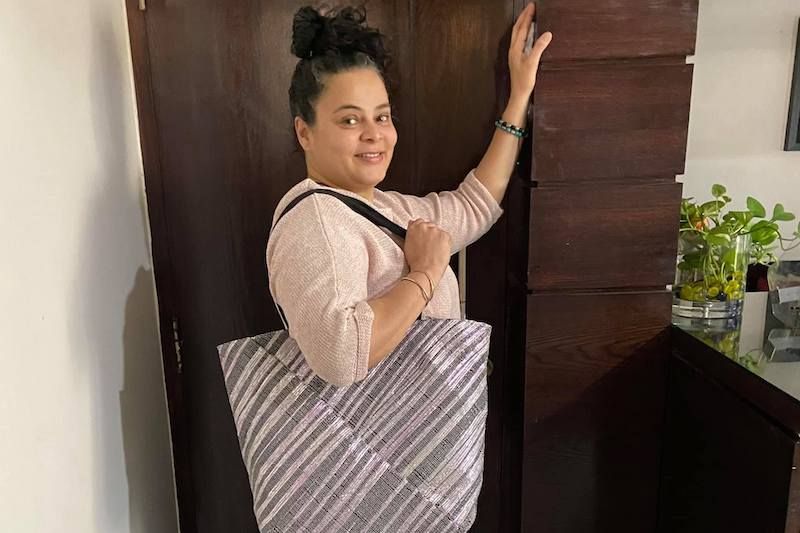What does it mean to live a more sustainable life? For trainer Neelu Grover it means zero waste and living a plastic- and chemical-free life. After reading about invisible toxins and chemicals found in household products that can enter your home and cause long term health issues, Neelu was concerned about how these things could affect the health of her child. So she decided to live a more sustainable life, a choice that was reinforced by the COVID-19 pandemic, which gave her the opportunity to reflect on the damage humans have caused to the earth, leading to global warming.
“I’m trying to keep my carbon footprint as low as I can,” she says. “I have decided to be more conscious. Climate change is real.”
To do this, Neelu follows the five Rs:
Refuse: Neelu refuses single-use plastic as much as possible, as well as any packaged item
Reduce: She has committed to living a minimalist life—she isn’t shopping for anything this year unless it is completely necessary. This includes not buying makeup, creams, clothes, or other personal items.
Reuse: Neelu is reusing items as much as possible, and repairing things when needed instead of throwing things away.
Rot: She has started composting.
Recycle: Neelu is recycling items, which has allowed her to use her creativity. This means finding non-traditional uses for items she has finished using for their original purposes.
While Neelu has figured out how to live a sustainable life, it isn’t always been easy. Some food items only come in single use plastic, so it can be hard to find alternatives. It’s also difficult to become a completely zero waste household. She still generates a small amount of trash and hasn’t figured out how to eliminate waste completely.
Some changes have been much easier. The pandemic has made it easy not to hoard items, since so many items have been difficult to find. She has also found that using bio enzymes to make shampoo is fairly simple, as is separating trash into categories for recycling (paper/plastic/glass etc.).
“When we think of waste we only think of plastic overflowing in dustbins,” Neelu explains. “We overlook toxic chemicals in our toilet cleaners and soaps that pollute our lakes and rivers. This causes irreversible damage to the environment. For this reason, I decided to make my own.”
The changes she’s made in her life have become part of her identity, and as a result she is passionate about teaching others about sustainability. One tip she has for anyone wanting to try this lifestyle as well: Don’t try to do it all at once.
“Start with a waste audit. Do not throw out any dry waste for a week if possible,” she suggests. “You will be surprised—no, actually shocked by how much waste you generate. It will motivate you to move to the five Rs.”
She says that it is important to move slowly and see what fits your lifestyle. Start by replacing chemical products, such as detergents and soaps, with organic and eco-friendly brands before learning to make them yourself. Another easy step is to refrain from hoarding. Buy new items only after you replace or use the item completely.
“Remember, we are worth more than all the stuff we collect in our homes,” Neelu says.
One final piece of advice from Neelu: “Make sure you know your “why” for moving to a more sustainable life. The “how” will eventually find its way to you.”



